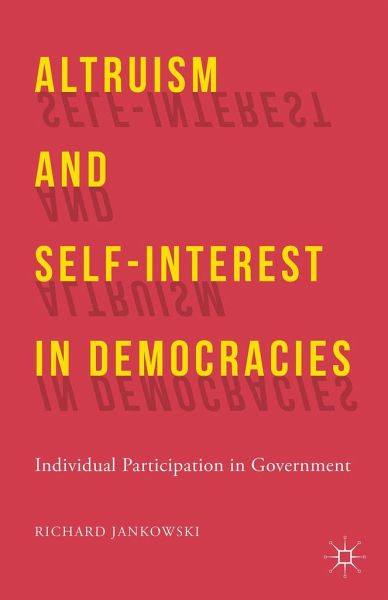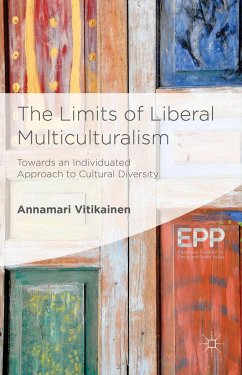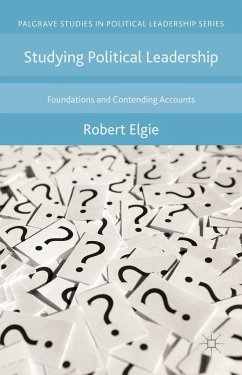
Altruism and Self-Interest in Democracies
Individual Participation in Government

PAYBACK Punkte
19 °P sammeln!
Individuals have little incentive to vote, acquire political information or contribute campaign funds, because their vote has very little chance of affecting the outcome of an election. Jankowski offers an explanation and evidence for political participation based on the fact that most individuals are weakly altruistic.












